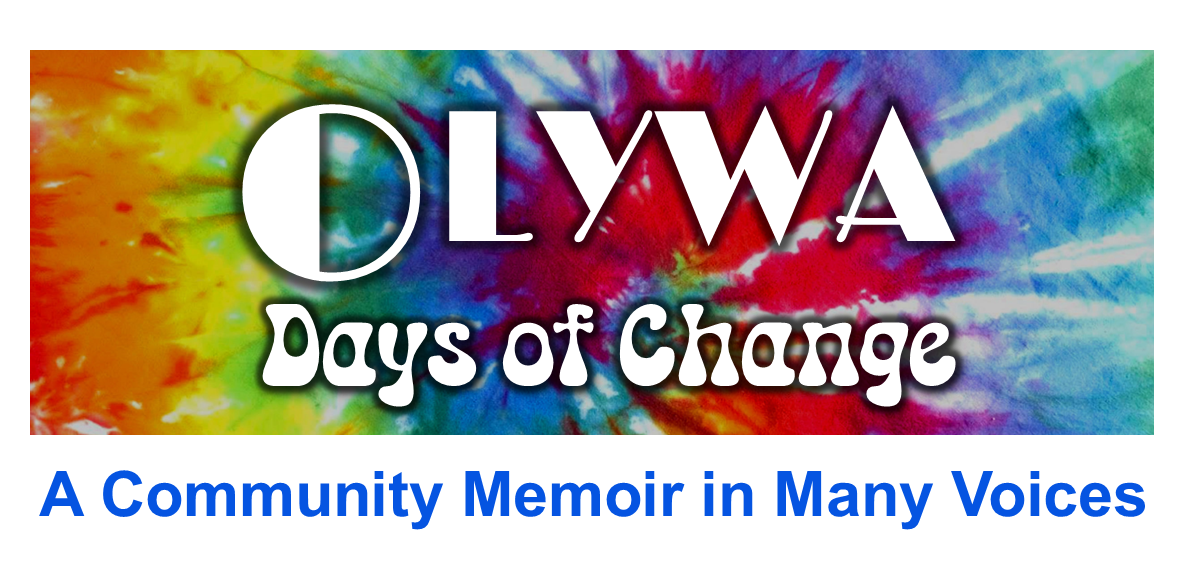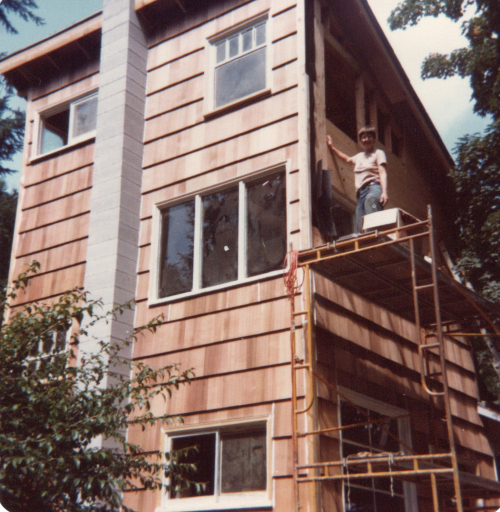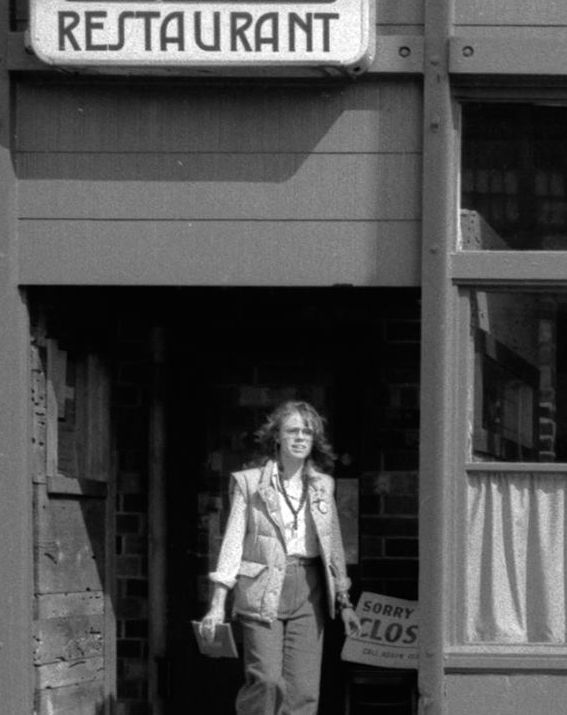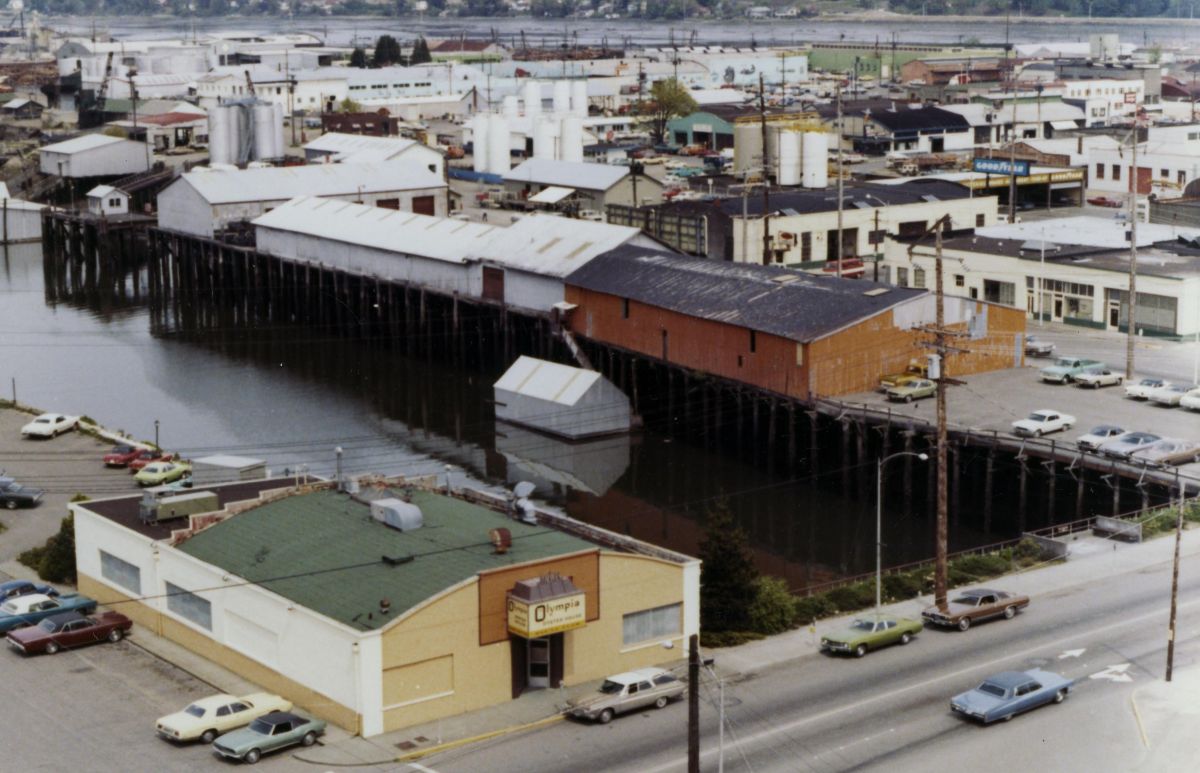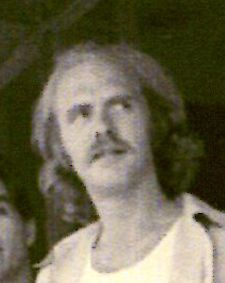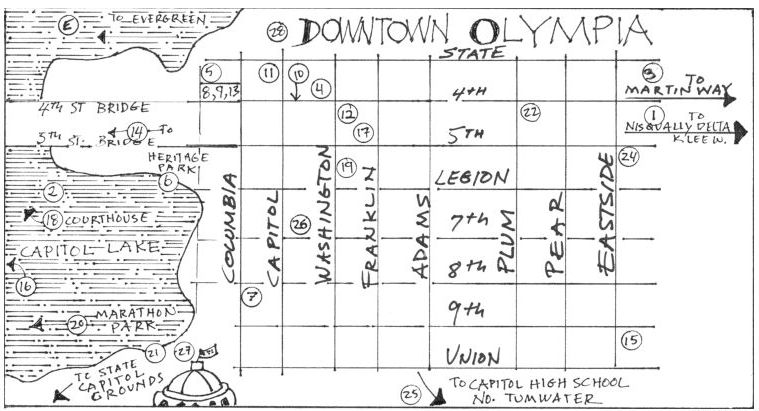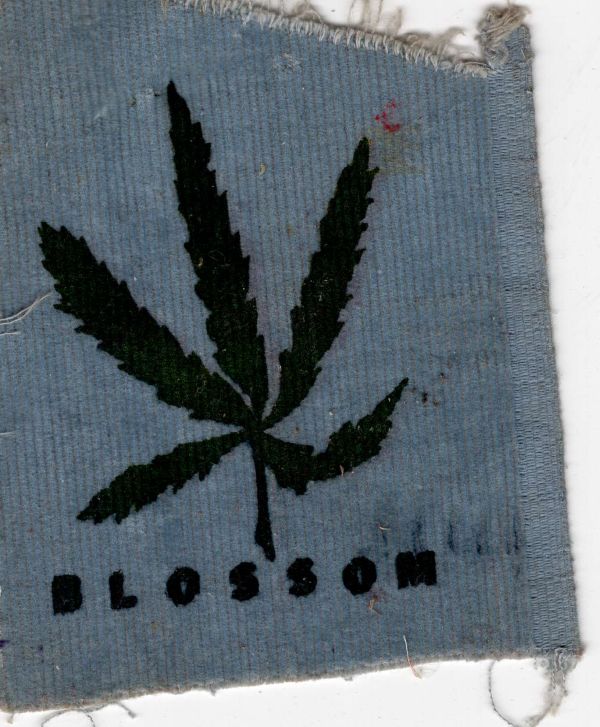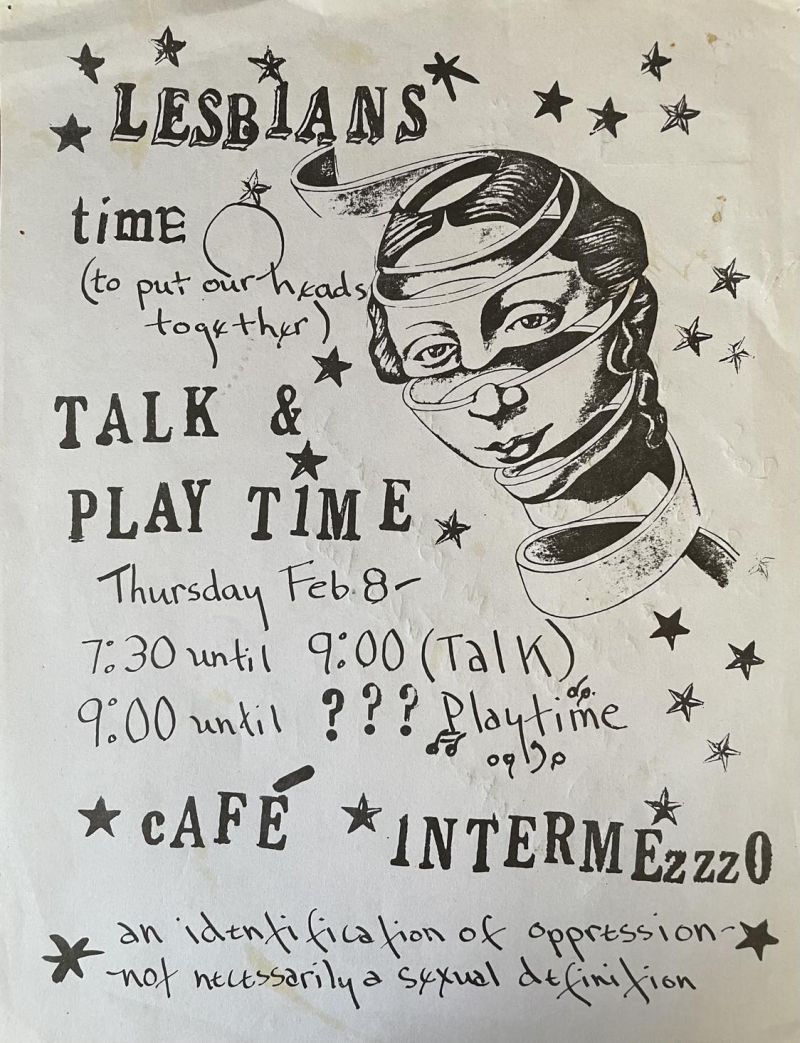LLyn’s Tower: An All-Woman Construction Project – 1979 – By Jean Eberhardt
LLyn De Danaan, Anna Schlecht and I got together for an interview at LLyn’s house, but it quickly morphed into a boisterous reminiscence of the time that Nozama Construction, the newly minted construction collective, came to build an addition on her house to accommodate her growing family. Forty-five years later, this two-and-a-half-story addition, affectionately referred to as a tower by LLyn, still stands.
